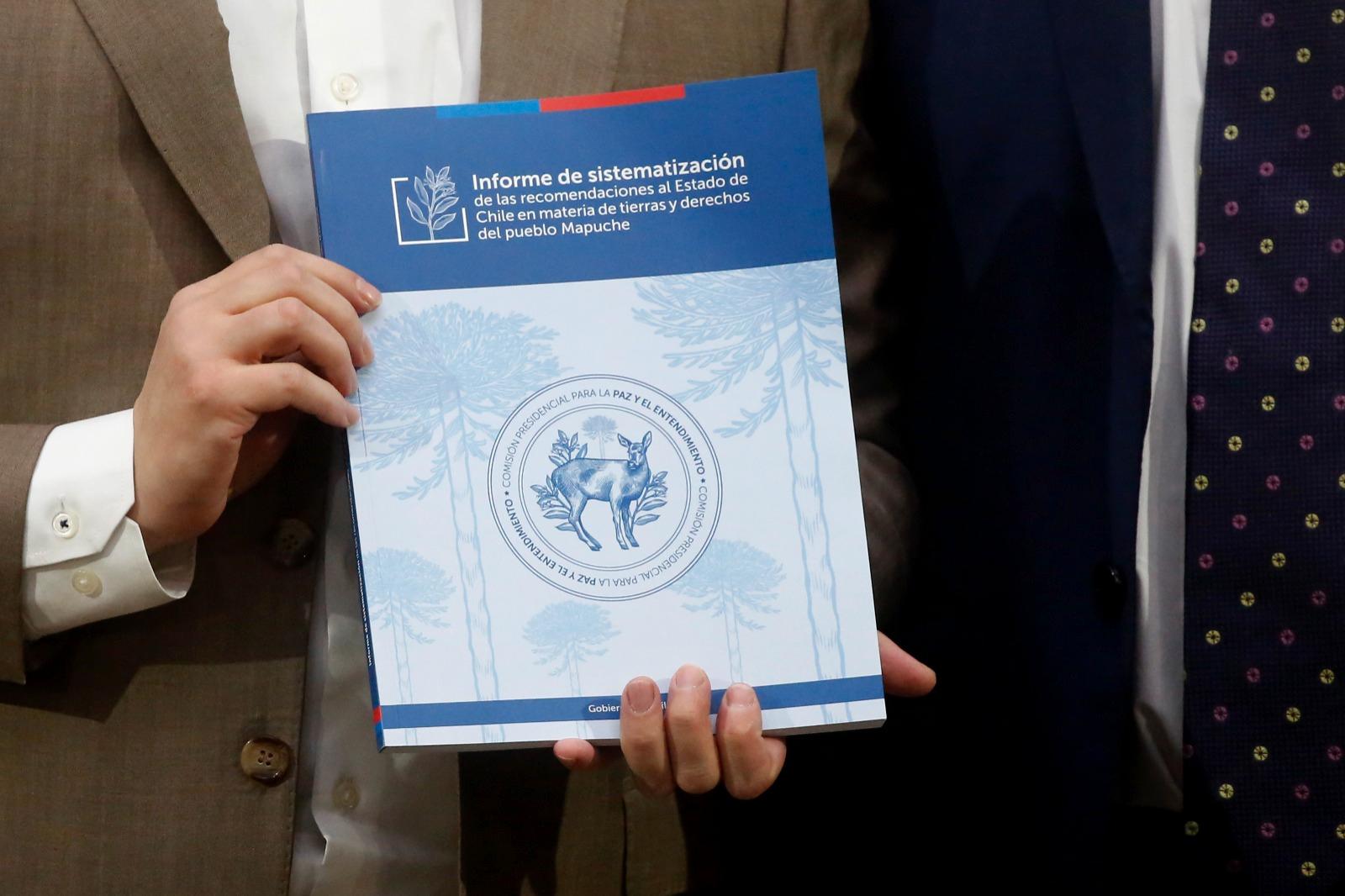Meanwhile, lawmakers and voices from the La Araucanía Region argue that proposals must have a sense of realism and that land restitution is not the only form of reparation for indigenous communities.
The proposal by commissioners Adolfo Millabur and Gloria Callupe, which emphasizes that the institutionalized Mapuche demand is for 385,860 hectares of agricultural land, found no support among those involved in territorial claims discussions.
The commissioners' idea arises within the framework of discussions taking place in the Commission for Peace and Understanding, launched by President Gabriel Boric, which is set to operate until January 31 of next year.
Among the commissioners, the idea does not garner much agreement. On Monday, former minister Alfredo Moreno stated that the commission reviews all proposals, but the key is to find a balanced solution.
Carmen Gloria Aravena (senator of the Republican Party) noted that "this is just a proposal from commissioners. I respect the position, but clearly some points are unrealistic, and it’s necessary for this solution to first gain approval from all commissioners and then secure a definitive commitment to amend the Indigenous Law, ensuring this process reaches closure. Otherwise, it’s very hard to sustain the proposal."
Her counterpart Sebastián Naveillán added, "(Millabur’s proposal) is part of the complexity of the issue, and obviously, each commissioner represents a sector. That’s Millabur’s view, but just because he proposes it doesn’t mean it’ll make it into the final report. All texts are on the table and are being analyzed one by one. We’re holding discussions and negotiations to draft the final proposal, with in-person meetings at La Moneda."
Other commissioners consulted by "El Mercurio" chose not to comment on the proposal amid the commission’s debate.
The commission, created by President Boric during his first visit to La Araucanía, aims to establish a solution to the land restitution issue. It is led by Frente Amplio member Víctor Ramos and operates under the General Secretariat of the Presidency.
Among experts and voices working on issues related to the conflict in the southern macrozone, there is also no consensus on the Millabur-Callupe proposal.
Luis Mayol, former governor of La Araucanía, said, "There are members of that commission who have never had—and never will have—the will or intention to resolve or seek a solution to this situation. The so-called 'Mapuche problem' has faded for most citizens, yet they seize every chance to revive it. The solution to the so-called 'historical debt,' if it exists, isn’t necessarily compensated with land—land that others now occupy and work as legitimate owners."
Former provincial delegate Andrea Parra states, "Returning land cannot be the only compensatory mechanism because there are different realities and aspirations. Regarding Millabur and Callupe’s proposal, I believe ensuring the real participation of indigenous peoples in the country’s political and social life is fundamental." Parra adds that clarity is needed, as not all aspirations will be met, and "whether it’s more or fewer hectares, what matters is defining a framework for the debt and a timeline to close it."
Deputy Miguel Mellado (RN) from District 23 (La Araucanía Region) claims there is no trust in what may come from the Presidential Commission for Peace and Understanding, as solutions are historically complex to implement. He further notes, knowing the proposals on the table—like that of former constitutional delegate Adolfo Millabur, who asserts that land restitution for communities with institutionalized demands is estimated at 385,860 hectares of "agricultural land"—makes it worse.
"Déjà vu of the Convention’s Proposal"
"The truth is, Millabur and Callupe’s proposal is a déjà vu of the failed constitutional proposal. There also isn’t enough land to return to all who want it, and with the poorly constructed Indigenous Law (where communities keep forming—some with Mapuche ancestry but not living in territories—and just 10 people gather to create a community and claim land with merced titles, growing uncontrollably), compensating all claimants will be very costly," the lawmaker states, calling Millabur’s proposal disproportionate.
"I regret—he adds—that this excessive proposal exists for today’s Chile, where 650,000 Mapuche compatriots live in Santiago and only 340,000 in La Araucanía. I hope it’s rejected and things are put into perspective for modern Chile, where Mapuche communities are part of Chile and push this country forward just as descendants of Germans, Italians, or Spaniards do."
Overlaps Between Millabur’s Proposal and the First Attempt at a New Constitutional Text
Lawmakers from La Araucanía agree that Millabur and Callupe’s proposal resembles what was proposed in the first Constitutional Convention.
In fact, Deputy Andrés Jouannet (Amarillos por Chile) notes that the introduction to the topic seems identical. One point mirroring the constitutional proposal is indigenous autonomy and justice.
"The proposal suggests traditional authorities administer justice, which was also in the rejected constitutional draft. In La Araucanía—especially in areas like Padre Las Casas, Lonquimay, and Puerto Saavedra, with high Mapuche populations—the constitutional proposal was rejected by over 75%. So why is it back on the table?" says the deputy from District 23 in La Araucanía.
Another common topic is reserved seats: the constitutional proposal included them, while Millabur’s speaks of "Mechanisms / regulatory reforms enabling Mapuche political participation at regional/municipal levels." His document states: "Special participation mechanisms must be considered, such as Mapuche seats in municipal councils or regional councils, or quotas via candidate lists exclusively for Mapuche." Constitutional recognition and the principle of interculturality are also revisited and now before the Presidential Commission for Peace and Understanding.
Source:El Mercurio







Comentarios (0)
No hay comentarios aún. ¡Sé el primero en comentar!
Deja un comentario